When we wait a year, we can say something that we hope makes sense and we will soon find out if we were right. But what if we imagine the world over a longer period? Can we really sensibly peer that far into the future?
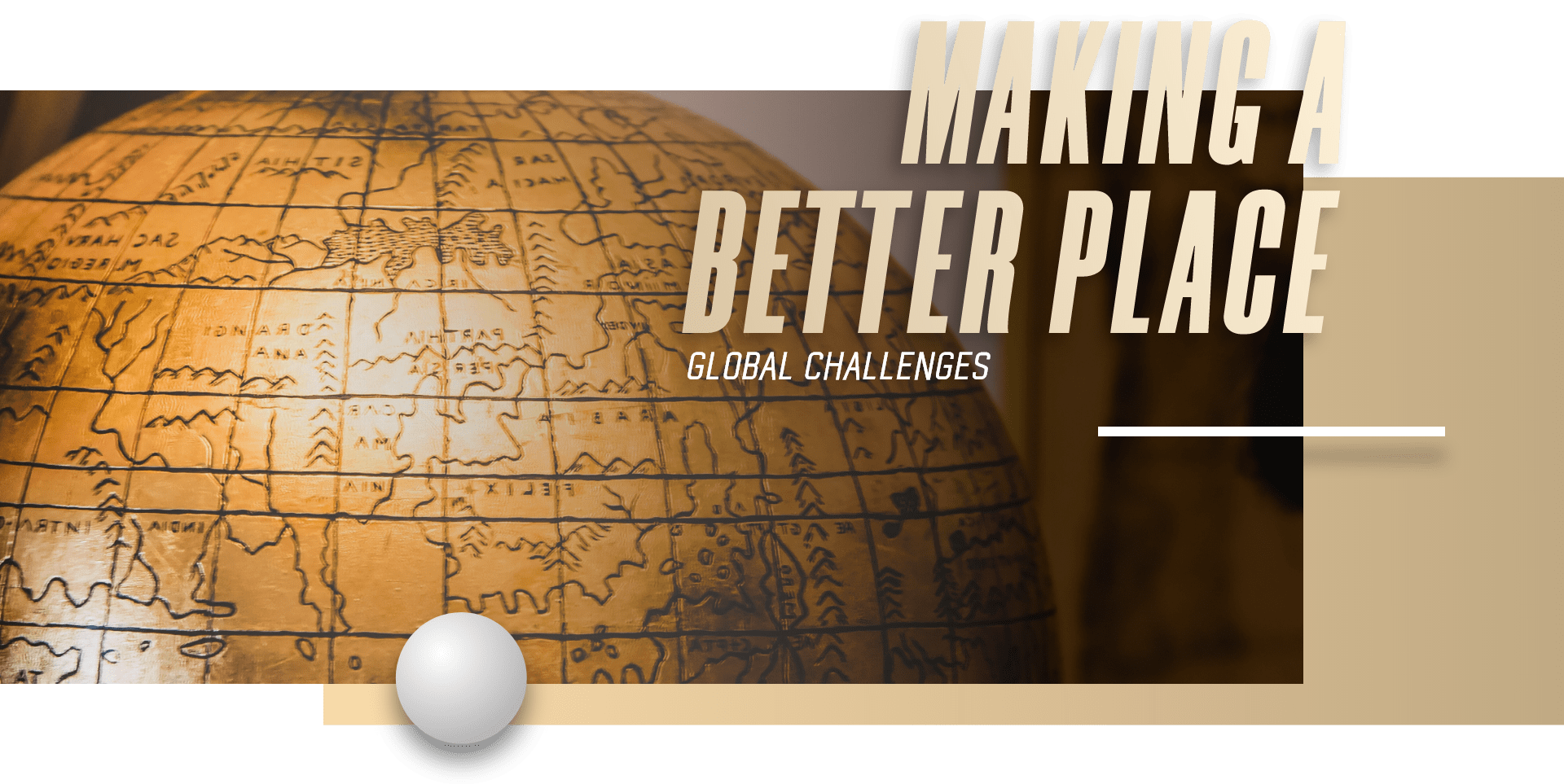


What will the world be like in ten, twenty or thirty years? How will we live in 2050? At the astonishing speed with which the world is evolving, it is very difficult to make predictions.
HOW WILL WE SOLVE THE GLOBAL CHALLENGES, WHICH TODAY REPRESENT THE BIGGEST OBSTACLE TOWARD OUR FUTURE?
Over the past 10 years technologies that seemed futuristic have become part of daily routine, both in terms of use and people’s expectations. Due to continued technology-driven productivity improvements, by 2050 the world economy could more than double in size, outstripping population growth.
This change will have to take place considering the major social and environmental challenges.Ensuring that the potential benefits of globalization are shared more equally across society and developing new green technologies to ensure that long-term global growth is environmentally sustainable.
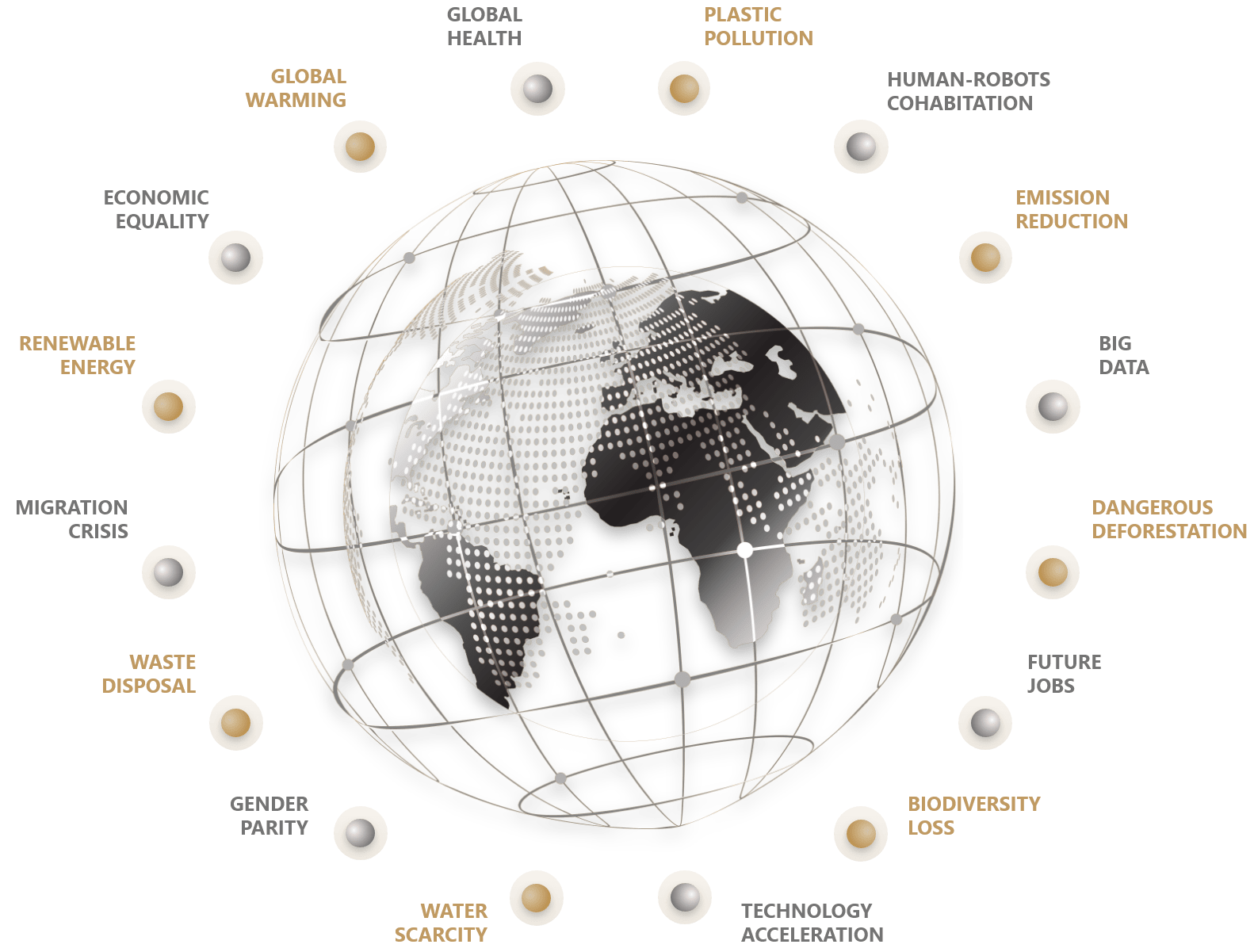
ALL PLAYERS ALONG THE VALUE CHAIN HAVE STARTED REVIEWING THEIR STRATEGIES IN ORDER TO PERFORM ALL THE CORRECT STEPS TO SURVIVE AND THRIVE IN THE DISRUPTION CAUSED BY THIS NEW PHENOMENON.

Over the past 20 years the world has become a very small place. A place where even the smallest event results in a powerful butterfly effect with a great social impact.
And if, on the one hand, technology has generated greater well-being for a part of the population, on the other, serious problems have emerged. Issues that until a few years before were barely perceived by the public.
Among these issues, the relationship between climate change and poverty. Climate change exacerbates inequalities, not only in poor and developing countries, but also in industrialized and rich ones.
Inequality in access to basic resources based on demographic characteristics, such as gender, race, ethnicity, religion and age, which affect health, education, housing, financing and other publicly funded services.
So whether it’s about turning promises on climate change into action, rebuilding trust in the financial system or connecting everyone in the world to the Internet, these challenges, and many more, need to be addressed, both from the public sector and from the private one.
Needless to say, all these issues are related. So we identified three macro categories that require clean intervention to generate a change in the right direction.
ENVIRONMENT
The Urgent Challenge
EQUALITY
The Compelling Challenge
EDUCATION
The Continuous Challenge
Climate change, deforestation, plastics and more are all threats to our future. Unless we let things get worse, we have to face these problems now. The environment is more than a goal, it is a battle that will require a commitment from everyone on this planet.
Widening disparities in pay, gender, health and job is undermining trust in democracy. Adding to this the pressure exerted on the middle class, in particular the younger generations, with stagnant wages and inaccessible house prices, finding a keystone is critical.
Education is the basis for building valuable human capital. But several causes, such as rapid technological changes, inequality in opportunities, the financial burdens of universities and more, have thrown the education system into a profound crisis.
WHEN IT COMES ABOUT BIG CHALLENGES IT IS ESSENTIAL TO UNDERSTAND THE QUESTIONS NOT YET FORMULATED. AND THEN SHAPE THESE QUESTIONS INTO THE PROPER FORM.

Our planet is facing unprecedented challenges. We aim to involve professionals from different sectors and individuals of all generations who are inspired to solve these challenges for a fairer and more sustainable future.
To achieve this, we need to implement strategies and identify and create new ways of living, working, moving, consuming that help us restore environmental balance and establish a better society.
It is a fundamental and primary theme, which concerns both organizations and individuals, to find balance in the present and leave a better world for generations to come.

Global Challenges
Environment
The first approach directly concerns the management of the environmental issue. This approach is largely based on information emerging from research on earth and from environmental sciences.
Global Challenges
Society
The second approach concerns the management of everything related to social needs, which implies the consumption of resources but issues related also to the cultural behaviors and technology disruption.


According to researches on future scenarios, the environmental ecosystem will undergo significant changes. Climate change is actually only one of the causes that will lead to such effects, such as natural environments, plants and animals.
A direct consequence will be the acceleration of biodiversity loss in some areas. This impact will affect many communities and sectors that depend on natural resources, including agriculture, fishing, energy, tourism and water.
PLASTIC POLLUTION
EMISSIONS REDUCTION
DANGEORUS DEFORESTATION
BIODIVERSITY LOSS
WATER SCARCITY
WASTE DISPOSAL
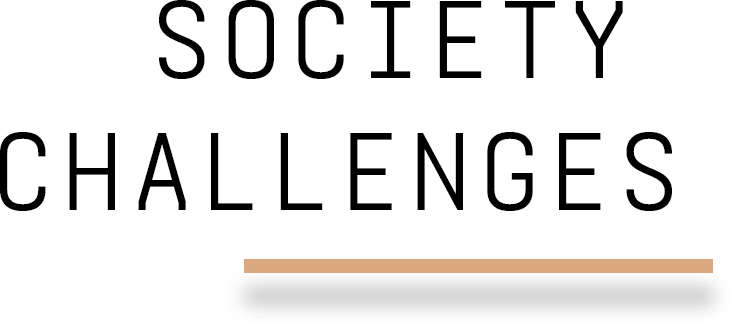
Economic, demographic and technological forces are shaping a new balance of power. Disruptive technologies such as artificial intelligence continue to spread in society.
Institutions and organizations are looking for new measures that can effectively respond to changes resulting from the fourth industrial revolution and other phenomena of social instability.
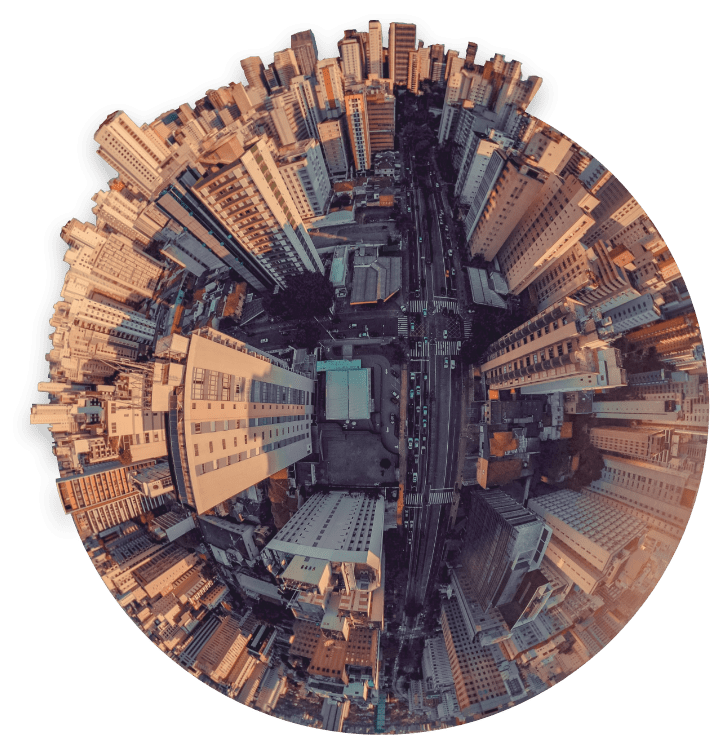
HUMAN-ROBOTS COHABITATION
BIG DATA
FUTURE JOBS
TECHNOLOGY ACCELERATION
GENDER PARITY
MIGRATION CRISIS

If you want to share your vision of the future. If you are building a project to change the future. If you want to expand your organization’s know-how and future perspective. Don’t wait any longer, contact us now.
WE BELIEVE IN THE ABILITY OF HUMAN BEINGS TO MAKE THE BEST VERSION OF THEMSELVES THROUGH MAKING A BETTER WORLD.
EXPLORE MORE
Uncover all our activities, explore our programs, find out more about how our network of professionals can help you and help us sustain the global change.
Global Challenges


